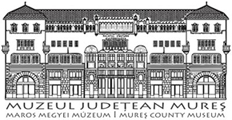Marisia - Maros Megyei Múzeum Évkönyve 33/4. (2013)
Book review
318 Book Review women potters (de Bernardo Stempel et al), the Celtic stelae (Ramsl) and the excavations froma Celtic settlement (Gustin). Several studies reflect upon the Iron Age art, religion, beliefs and cult: the eagle representations of the Scythian art (L. D. Nebelsick), the elephant, dolphin and griffin representations of the Celtic metalwork and coinage (Olmsted), the so called “Hungarian” sword style of the Celtic art (V. Megaw-R. Megaw), the Celtic beliefs and “metempsychosis” (Meid), the Celtic ancestor god (Zeidler), Celtic cosmology and the connected rituals (Simon), Late Iron Age and Celtic hero cult (Haeussler) and Neo-Druidism (Leskovar). A study in linguistics examines a Gaul inscription (Stüber), a further paper relates about the Celtic language and the Indo-European languages (Schmidt) and the theoretical approach of historical linguistic (Hajnal). Two studies interpret archaeozoological materials; the first refers to the economic and spiritual importance of the red deer (Bartosiewicz), while the second one reports the occurrence and spreading of domestic hen (Gál). The volume is highly recommended for all those interested in European, especially Central European Early and Late Iron Age archeology and linguistics.
